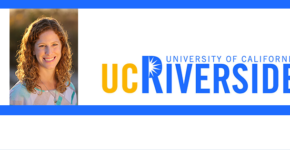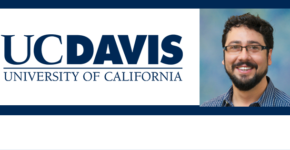Tag: psychology
-

Stacie Bosley, Hamline University – Pyramid Schemes
Everyone has been pitched on a pyramid scheme. Stacie Bosley, assistant professor of economics at Hamline University, discusses risk factors for victimization and how to keep yourself and loved ones’ finances safe. Stacie Bosley is an economist who focuses on microeconomics and behavioral economics in both her research and teaching. Bosley is presently studying the…
-

Krista Ingram, Colgate University – The Decision Making of Early Birds and Night Owls
Early bird or night owl? Krista Ingram, associate professor of biology at Colgate University, examines how when you go to sleep or wake up can affect your decision making process throughout the day. Research interests include social behavior, chronobiology, human behavior, molecular ecology, tropical conservation genetics, and comparative sociogenomics. Teaching interests include animal behavior, evolutionary…
-

Abraham Rutchick, California State University Northridge – Killing From Afar
Does killing from a distance change how humans feel about the act of taking a life? Abraham Rutchick, associate professor in the department of psychology at California State University Northridge, explores this question. Abe Rutchick is an Associate Professor of Psychology at California State University, Northridge. He received his BS (1999) from Tufts University and…
-

Erin Cooley, Colgate University – Groups and Sympathy
Be careful how you talk about groups of people. Erin Cooley, assistant professor of psychology at Colgate University, delves into how language affects what we think of people and their experiences. My research examines the cognitive, affective, and physiological mechanisms behind intergroup conflict and discrimination. I am particularly focused on understanding factors that lead people…
-

Susan Fraiman, University of Virginia – How the Homeless Create Homes
Just because you are homeless doesn’t mean you can’t have a home. Susan Fraiman, professor in the department of English at the University of Virginia, says the less fortunate find a way to make a home however they can. As a feminist theorist, my primary interest is in issues of gender and sexuality, whether in…
-

Jessica Fish, University of Texas at Austin – Mischievous Teens
Can teens be trusted to report truthfully on a scientific study? Jessica Fish, postdoctoral fellow at the University of Texas at Austin, examines whether the stigma of mischievous teens is true – or false. Jessica Fish is a human development and family sciences scholar with interests in LGBTQ health and well-being. She joined the Population…
-

Christian Kiewitz, University of Dayton – Bad Bosses and Defensive Silence
Abusive bosses can have many harmful effects on a company. Christian Kiewitz, professor in management at the University of Dayton, discusses how a vicious cycle can damage the workplace. Christian Kiewitz is a professor of management at the University of Dayton. His publications and research interests involve workplace aggression, especially abusive supervision, as well as…
-

Karen Winterich, Penn State University – Taking A Photo Can Help You De-clutter and Donate
We all need to de-clutter our homes. Karen Winterich, associate professor of marketing at Penn State University, discusses a new trick to get people to give away more of the stuff they have trouble parting with. Professor Karen Page Winterich is a Frank and Mary Smeal Research Fellow and Associate Professor of Marketing at the…
-

Kate Sweeny, University of California Riverside – Mindfulness and the Stress of Waiting
Does waiting make you stressed? Kate Sweeny, associate professor in the department of psychology at the University of California Riverside, looks into how to chill out while waiting for potential bad news. Kate Sweeny is an Associate Professor of Psychology at the University of California, Riverside. She received her BS (2002) from Furman University and…
-

Jorge Pena, University of California Davis – Depression and Video Games
Could video games help fight depression? Jorge Pena, associate professor in the department of communication at the University of California Davis, explores this question among college students. Jorge Peña specializes in computer-mediated communication, new media, communication in video games and virtual environments, and content analysis of online communication. He is a member of the editorial…
